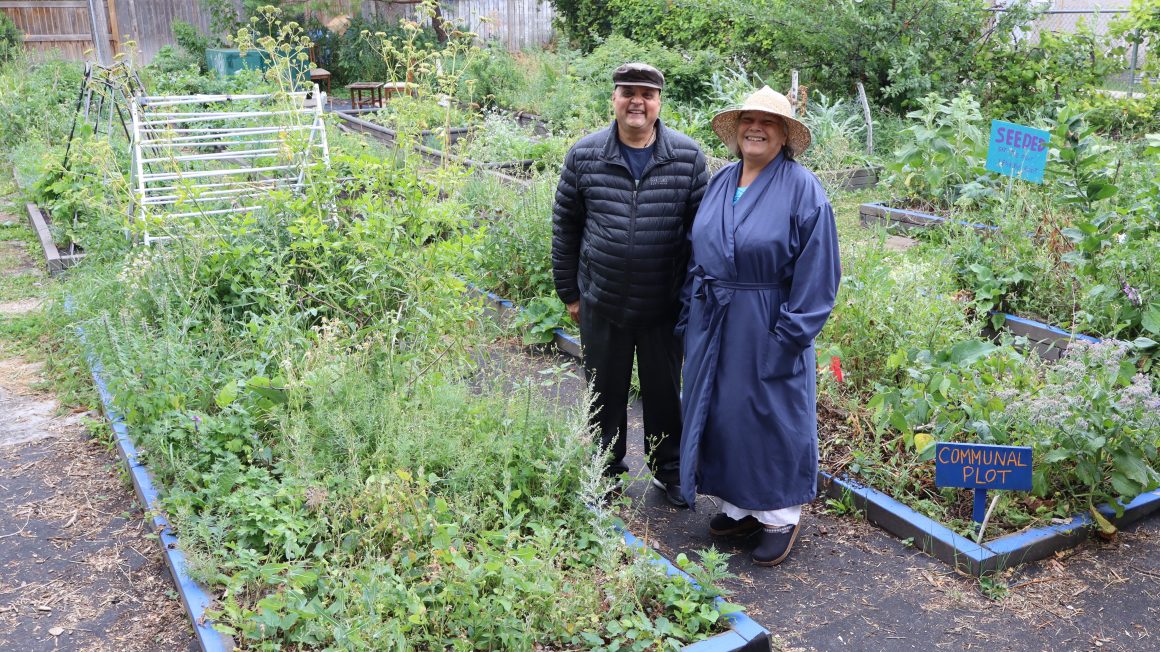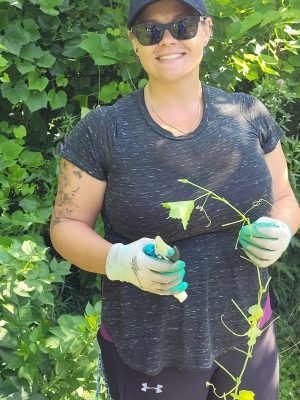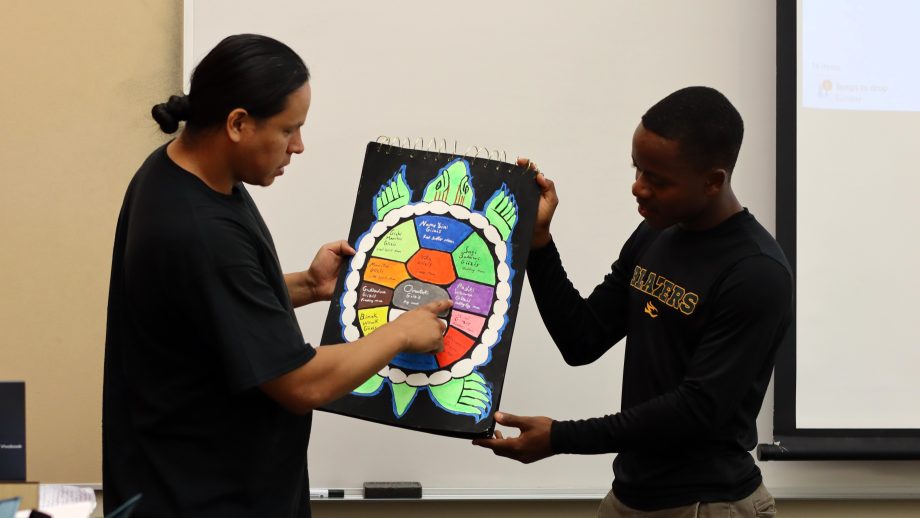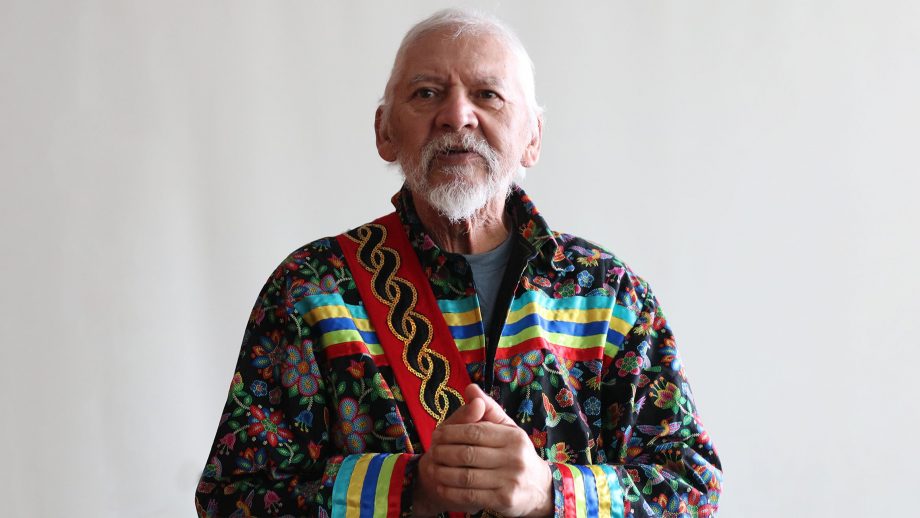A five-minute walk from The University of Winnipeg campus, tucked between two houses and a playground, is Spirit Park Community Gardens, where a group of students rolled up their sleeves this summer to take part in the Indigenous Food Systems field course.
Dr. Shailesh Shukla, Associate Professor and Chair of the Department of Indigenous Studies, teaches the course. This year, he was joined by Elder Audrey Logan, a Neheyow, Métis knowledge keeper, forager, and food grower.
Students begin with a week of lectures, readings, and presentations, followed by a week in the garden. A wrap-up potluck provides an opportunity for students to share what they’ve learned and swap recipes and plant ID cards.
Elder Logan has created this space for the community and for students to come and work and learn on a continuous basis.
Gloria Doerksen-Johannesen
The final assignment sees the class divide into small groups and compile a recipe calendar, gardening book, and resource guide for newcomers. Copies are supplied to the West Broadway Community Organization.
“It was an interactive final project that I was really interested in and excited about doing,” said Gloria Doerksen-Johannesen, a third-year student in the Faculty of Education’s Integrated Program. “It was really enjoyable and I would recommend this course to anybody.”
One of the goals of the course is to preserve and promote Indigenous knowledge of traditional recipes and land-based lifestyles. Scientific knowledge and Indigenous knowledge are taught side-by-side, and the course counts as a science credit and an Indigenous Studies credit.
“That’s something that’s a unique part of this course,” Dr. Shukla said.
The course is one way that UWinnipeg is advancing land-based experiential learning opportunities. While experiential learning often takes place in rural or remote areas, this course’s urban setting keeps its carbon footprint low and makes it more accessible for students.
Gathering and gardening on Young Street
Spirit Park Community Gardens has operated for over 20 years and is home to nearly 70 varieties of native plants. Logan gardens there every Saturday.
“One person’s weed is another person’s feed,” Logan said while checking a tangle of zucchini vines.
Lovage, grapevines, milkweed, bush beans, raspberries, and other cold-hardy plants grow in the student-tended plots, whose blue boxes distinguish them from community plots tended and enjoyed by neighbourhood residents.
Logan taught the students moon-cycle planting, companion planting, and Hügelkultur (hill culture), a planting method involving the use of mounded organic material. “Diversity in every plot” is one of Logan’s mottos. “We don’t do rows” is another.
That was an adjustment for Doerksen-Johannesen.
“By the end, I could point out specific plants, but at the beginning, it looked like a bit of a mess,” she said with a laugh.
“When I first walked into that garden, I was like, ‘Where’s my rows, where’s my groupings?’ Now I see how companion planting enhances each plant. Everything grows where it needs to be to help each other. That was a learning experience.”
Logan also teaches students how use more parts of the plant. Pulling the prickles off a zucchini leaf, Logan explained they’re great for making sandwich wraps.
“There’s always lots of food, people just don’t always realize it,” Logan said. “And there’s higher nutrition in this than what you’re getting in the store.”
Logan also teaches dehydration food storage, which preserves more nutritional value and requires less equipment than canning or pickling.
Logan hopes students who take the course share what they’ve learned with others. Doerksen-Johannesen said she plans to do just that when she has her own classroom one day. She also plans to bring her three children to Spirit Park to garden with Logan.
“Elder Logan has created this space for the community and for students to come and work and learn on a continuous basis. I think I’ll probably hold that forever,” Doerksen-Johannesen said.
Working collaboratively
Previous iterations of the Indigenous Food Systems course have also involved community collaboration. In 2019, Fisher River Cree Nation collaborated with Dr. Shukla to produce an English-Cree cookbook filled with recipes, teachings, and stories of traditional foods.
The award-winning cookbook is an updated version of The Forgotten Traditional Foods of Fisher River (2014), which was first published, in English only, as part of a UWinnipeg Faculty of Graduate Studies field placement program. Copies can be purchased for $25 from the Department of Indigenous Studies.






